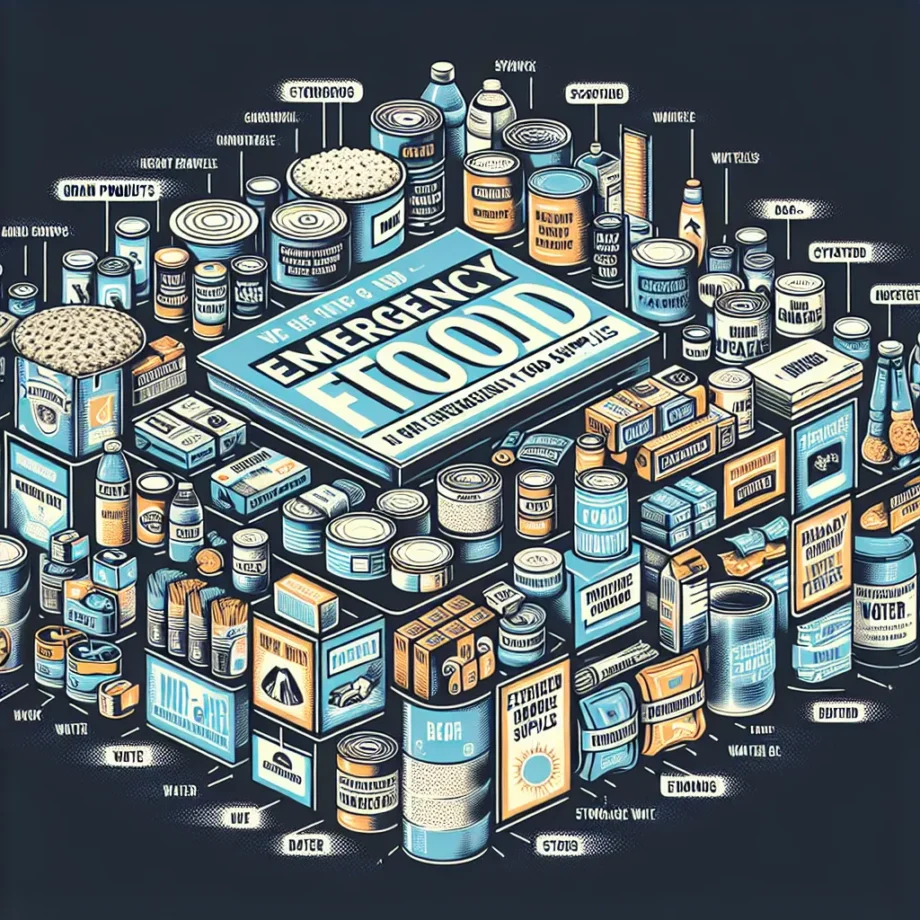1) Importance of Rations in Emergency Preparedness
When it comes to emergency preparedness, having an ample supply of rations is crucial for ensuring the survival and well-being of individuals and communities. In times of crisis, access to food may become limited or entirely cut off, making it essential to have a stockpile of rations that can sustain people until regular food sources are restored. Whether facing natural disasters, pandemics, or other emergency situations, the importance of rations cannot be overstated.
Key considerations in selecting rations for emergency preparedness include non-perishability, nutritional value, and ease of preparation. Non-perishable foods such as canned goods, dried fruits, and nuts are vital as they have a long shelf life and require no refrigeration. Furthermore, rations should provide essential nutrients to maintain health and energy levels during challenging times. Finally, easy preparation, such as ready-to-eat meals or items that require minimal cooking, ensures that rations can be quickly utilized even in adverse conditions.
Additionally, the quantity of rations must be sufficient to sustain individuals and families over an extended period. Adequate planning and calculation of rations based on the number of people and the duration of potential emergencies are critical for effective preparedness. Creating a well-rounded supply of rations that includes a variety of food types can also help maintain morale and provide comfort during stressful times.
In conclusion, rations play a fundamental role in emergency preparedness by providing a lifeline during times of scarcity and uncertainty. The strategic selection and stockpiling of rations that are non-perishable, nutritionally sound, and easy to prepare can significantly enhance the ability to weather unforeseen challenges. By recognizing the importance of rations and carefully considering their role in emergency preparedness, individuals and communities can better equip themselves to confront and overcome crises.
2) Effective Strategies for Stocking Emergency Rations
When it comes to emergency preparedness, having a well-stocked supply of rations is crucial for ensuring the survival and well-being of individuals and communities in the face of unforeseen disasters. Effective strategies for stocking emergency rations involve careful planning and consideration of various factors.
First and foremost, diversity in the selection of emergency rations is essential. A well-rounded stockpile should include a mix of non-perishable food items such as canned goods, dried fruits, nuts, and high-energy snacks. This diverse selection ensures that individuals with varying dietary needs or restrictions can be accommodated in emergency situations.
Secondly, the quantity of rations stocked should align with the number of people for whom the emergency supply is intended. It is recommended to calculate the amount of food needed based on the number of individuals and the anticipated duration of the emergency. Generally, a three-day supply of rations is the minimum recommendation, but longer-term preparedness may require a supply that can last for weeks or even months.
Furthermore, proper storage of emergency rations is a critical consideration. Rations should be stored in a cool, dry place and regularly checked for expiration dates to ensure their viability in case of an emergency. Rotation of stock is also important to prevent the waste of food items that may expire.
Lastly, consideration should be given to the nutritional content of the stocked rations. High-protein and high-energy foods can be particularly important in emergencies, providing the necessary sustenance for individuals facing physical and mental stress. Additionally, vitamin supplements or fortified food items can help address nutritional deficiencies that may arise during prolonged emergency situations.
In conclusion, effective strategies for stocking emergency rations involve a diverse selection of non-perishable food items, careful calculation of quantities, proper storage, and attention to nutritional content. By implementing these strategies, individuals and communities can better prepare themselves to withstand the challenges posed by unexpected emergencies.
3) Key Considerations for Ration Planning
When it comes to emergency preparedness, ration planning plays a critical role in ensuring that individuals and families have access to essential food supplies during a crisis. There are several key considerations that must be taken into account when developing a ration plan to effectively address the needs of the situation.
First and foremost, it’s important to assess the nutritional requirements of the individuals for whom the rations are being planned. Different age groups, activity levels, and health conditions require varying levels of nutrients and caloric intake. Understanding these specific needs is essential for creating a ration plan that promotes health and well-being during an emergency.
Additionally, when developing a ration plan, it’s crucial to consider the shelf life and storage requirements of the chosen food items. Opting for non-perishable and easy-to-store food items is advisable to ensure that the rations remain viable for an extended period. Proper rotation of rations and regular checks for expiration dates are also essential to maintain the effectiveness of the ration plan.
Furthermore, the inclusion of dietary restrictions and preferences in ration planning cannot be overlooked. Accommodating individuals with food allergies, religious dietary restrictions, or specific lifestyle choices ensures that the ration plan is inclusive and meets the diverse needs of the individuals it serves.
Lastly, the practical aspects of ration distribution and meal preparation should be factored into the planning process. Designing a ration plan that allows for easy distribution, minimal preparation, and efficient utilization of resources is crucial for ensuring that the rations can be effectively utilized during an emergency situation.
In conclusion, effective ration planning in emergency preparedness requires careful consideration of nutritional needs, shelf life and storage, dietary restrictions, and practicality of distribution and utilization. By addressing these key considerations, individuals and families can develop comprehensive ration plans that support their well-being during challenging times.
